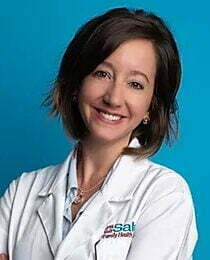 By Leah Schulz, D.D.S., CDA President-Elect
By Leah Schulz, D.D.S., CDA President-Elect
Show of hands: who knows what the acronym “ATL” stands for? An ATL is an Action Team Leader. “Come again?” you may be saying. “An Action Team Leader?” Action Team Leaders are CDA member dentists who have a pre-existing relationship with or are willing to invest the time toward developing a relationship with state and/or national legislators. They are well informed on the CDA’s legislative strategic plan and can meaningfully advocate for the dental profession’s interests with legislators.
The ATL program is essential because, quite frankly, legislators can be uninformed about what they need to know to make major decisions. Dental-related legislative matters are no exception. Legislators rely on their colleagues who have dental practice experience, however, that experience may be dated and limited. They also rely on various health advocacy groups, lobbyists, other health associations, and us, the dentists.
To this end, Action Team Leaders need to be willing to foster a relationship with their legislators before we have an “ask.” This means meeting them for coffee or listening to them read a book to your kiddo at the local library and then chatting with them for 15 minutes afterward. It means not having to introduce yourself when you see them at the CDA Lobby Day because they already know you and they’ve already heard what’s important to the dental profession and CDA, which strive to advance the oral health of the public.
The ATL program has been neglected in recent years, for a multitude of reasons, and we want to change that. It needs greater involvement, a formal training program, clear expectations, and a strategic plan. Meeting a legislator for the first time with a set of talking points isn’t nearly as effective as being able to email or call a legislator with whom you have a rapport to bring up an issue.
We want to avoid a scenario whereby we invite colleagues to participate in the political process, but then they feel unsupported or unprepared to actively engage in the conversation. Let’s face it, dentists don’t want to do something if we’re not going to do it well. We then develop a mindset of, “I don’t know anything about politics (or I don’t know any politicians personally), so I won’t be helpful at Lobby Day (or I couldn’t possibly be an ATL).”
 Rest assured, the current CDA leadership has a vision to reinvigorate the ATL program. We aim to recruit interested dentists, provide formal training on things like how to talk to a legislator during a lobby day and in other scenarios, and how to succinctly get through talking points. Our goal is to provide some guidance on how to continually foster that relationship if you’re a new ATL or if you’ve been reassigned to a different legislator and what you were doing before isn’t working well with your newly assigned legislator. We are also already brainstorming ways to improve communication between the CDA Government Relations Council, CODPAC, Board of Trustees, and our ATLs, to keep EVERYONE in the loop and have multi-directional communication between these entities throughout the year, not just when it’s time to ask for something of our legislators.
Rest assured, the current CDA leadership has a vision to reinvigorate the ATL program. We aim to recruit interested dentists, provide formal training on things like how to talk to a legislator during a lobby day and in other scenarios, and how to succinctly get through talking points. Our goal is to provide some guidance on how to continually foster that relationship if you’re a new ATL or if you’ve been reassigned to a different legislator and what you were doing before isn’t working well with your newly assigned legislator. We are also already brainstorming ways to improve communication between the CDA Government Relations Council, CODPAC, Board of Trustees, and our ATLs, to keep EVERYONE in the loop and have multi-directional communication between these entities throughout the year, not just when it’s time to ask for something of our legislators.
Every region of the state has legislators. These legislators have kids and grandkids who go to school. They go to church or are involved in clubs around town—and heck, some of them may even go to a dentist every once in a while. Ideally you already know a legislator in your area! And even if you don’t but you’re sitting here thinking, “gosh, this doesn’t seem too bad; legislators are people, just like me, and if they’re uninformed about dentistry, I’m the perfect person to talk to them,” please scan this QR code and let us know who you are, which legislator you know, which legislator you’re dying to meet for coffee, or if you want to tag along for a while with a more experienced ATL in your area before taking the reins.
This is a program worth participating in personally. As an organization, it’s invaluable for us from an advocacy perspective, and we need people from all practice types, from all regions, and from all years of experience in dentistry, who are willing to invest the time developing meaningful relationships with legislators. We still have big hills to climb when it comes to advancing the oral health of Coloradans. This is one important way we can take some large steps to the top.
One More Acronym: CODPAC
For those who don’t know, CODPAC, or the Colorado Dental Political Action Committee, raises money to support state legislators who understand the importance of dentistry and are committed to the oral health of Coloradans. CODPAC dollars are the general fund used to support legislators who back dentistry’s key issues.
The Colorado Dental Small Donor Committee is another political funding tool, but it can give a candidate substantially more support than a regular Political Action Committee. By law, the maximum CODPAC can give any candidate is $400. But if we have someone we really like, then the Small Donor Committee can give more than $5000. Small donor committee dollars are used to support legislators who have gone above and beyond their peers to support dentistry—they are dentistry’s best legislative champions. The Colorado Dental Small Donor Committee has grown to be a notable player in Colorado’s healthcare political giving landscape.
Each election year, CODPAC leadership conducts a screening and interview process to evaluate candidates running for state legislative offices. During this process, the candidates complete a questionnaire on key dental issues and participate in individual interviews with CODPAC and CDA leadership. We need to know what the legislators’ positions are or would be, and they need to know our priorities. This process helps determine what level of support the candidate will receive. In total, 93 candidates seeking state legislative office participated in the CODPAC process in 2020. CODPAC gave $28,000 to support 74 candidates and nearly $70,000 was given by the small donor committee to support 31 candidates.
Some of you may be asking “Why would I give CODPAC or the Colorado Dental Small Donor Committee any money this year? The overwhelming majority of legislators voted in favor of dental workforce legislation to which I am personally opposed.” I would ask you to consider what scenario would have played out if we had no positive relationships at the state capitol? It is because of the hard work of the Government Relations Council and CODPAC over the years, that we were able to change a poorly drafted and irresponsible first bill draft (that would have passed with or without the CDA’s involvement) into something remarkably better and safer for Coloradans. There is still validity for CODPAC to continue its work. As I said about the ATLs, there are still hills to climb. Please consider donating either your time, your money or both to help advance our future legislative priorities.


